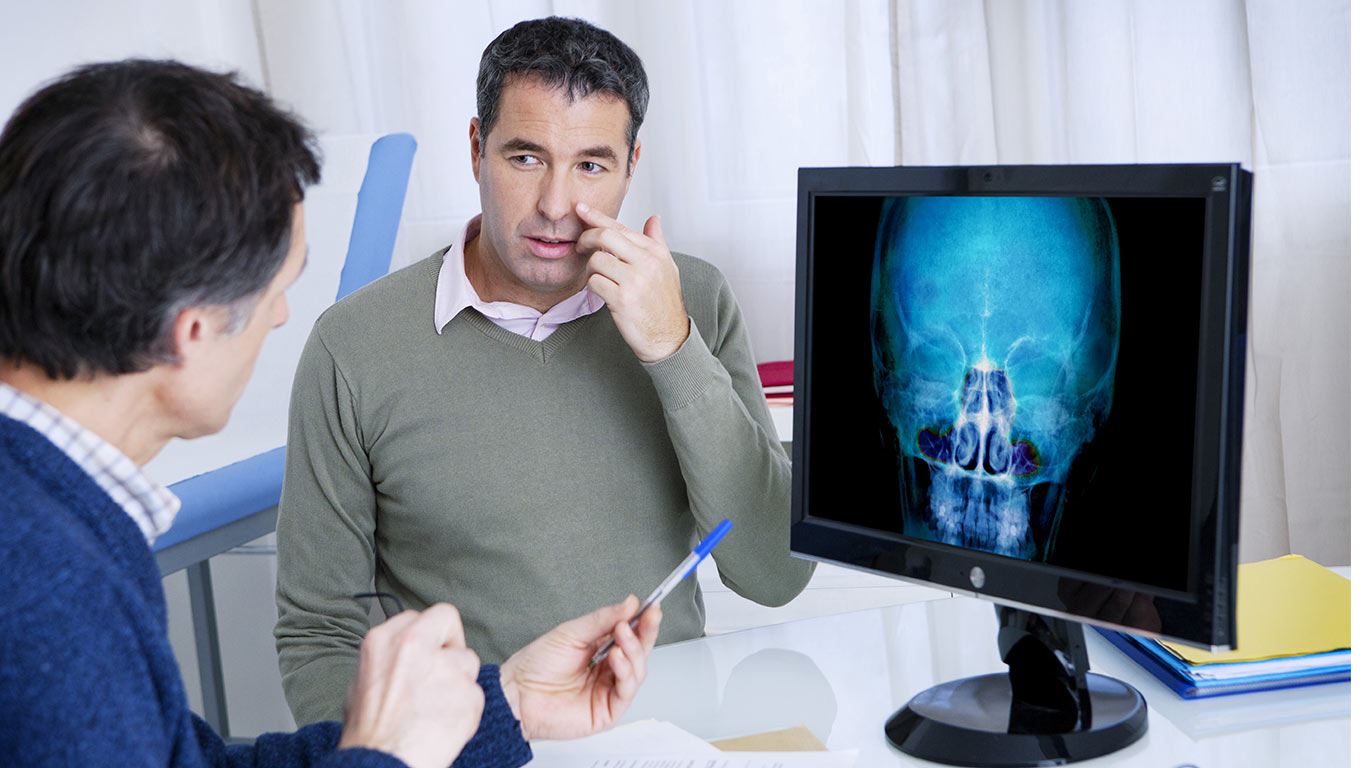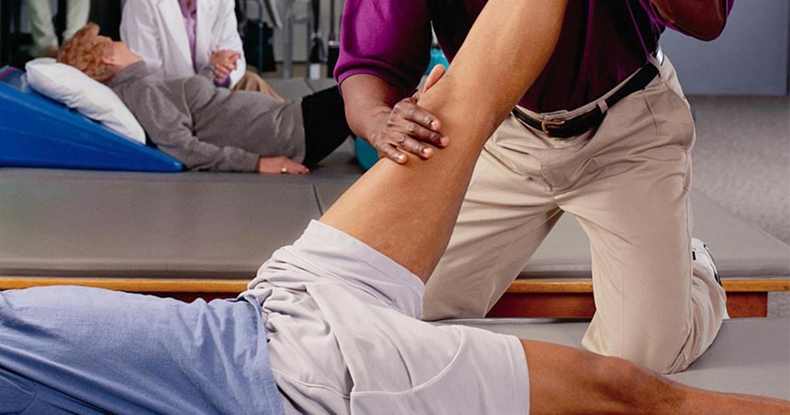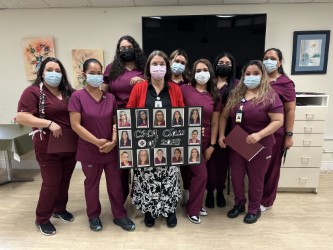Taking Care of Your Sinuses
- Category: Health & Wellness, ENT
- Posted On:
- Written By: LVMC

The sinuses play an important role in a person’s overall wellness. Here is a breakdown of how to take care of them and stay healthy.
When was the last time that you thought about your sinuses? Maybe it was when you had a stuffy nose or couldn’t sleep well because of congestion. Your sinuses play a critical role in your overall health. They can impact your senses and the way that you perceive your environment, and they are also part of the immune system that protects you from disease.
At Lompoc Valley Medical Center, we know that sinus health is crucial to overall wellness. Follow this guide to learn more about taking care of your sinuses, common sinus conditions, and the specific type of physicians that take care of sinus problems.
What Are the Sinuses?
Your paranasal sinuses are a network of hollow chambers in your skull. These spaces come in pairs, and you have four of them—your frontal sinuses (in your forehead), your ethmoid sinuses (beneath the bridge of your nose), your sphenoid sinuses (near the inner corner of your eyes), and your maxillary sinuses (within your cheek bones). Your nose is also connected to your sinuses by an opening known as an ostium. Not all sinuses are present at birth—the frontal and sphenoid sinuses don’t develop until after you’re born. For this reason, sinus conditions are less common in young children.
What Do the Sinuses Do?
Typically, your sinuses are full of air, and they help make your skull lighter and can protect it from injury if you have facial trauma. They can also influence the quality of your voice. However, the most important job of your sinuses is to help keep your body free of bacteria and other invaders. They do this by creating a thin mucus that continuously works to drain invaders (like microorganisms, dirt, and dust) out of your sinuses and down the back of your throat.
What Happens When Your Sinuses Go Awry?
When your sinuses are healthy, you may pay them no attention at all. You may take for granted the lightness you feel in your face and head, and the ease with which you take each breath through your nose. However, when your sinuses are affected by inflammation or infection, sinus symptoms can be highly distracting and bothersome. You may lose your sense of taste and smell, and your voice may sound different. You may have difficulty concentrating or sleeping, and you may develop a sinus-related headache. You may even have eye pain, ear pain, dizziness, or imbalance, depending on the severity of your symptoms.
What Conditions Affect Your Sinuses?
A number of conditions can cause sinus-related symptoms. Here are a few of the most common sinus conditions and their management.
Acute Sinusitis (Acute Sinus Infections)
Sinus infections, also known as sinusitis, happen when a virus or bacteria take up residence in your sinuses, causing symptoms such as nasal congestion, headaches, runny nose, and post-nasal drip. Sinus infections are different from a generic “head cold,” or rhinosinusitis, because their symptoms linger, lasting for 10 days or longer.
Symptoms of sinusitis include facial pressure, facial pain, dental pain, and high fevers. Rarely, sinus infections can spread quickly and cause infections of the eye, face, or brain. However, they usually stay local, persistently causing inflammation and symptoms, sometimes for weeks.
Sinus infection treatment depends on the cause. The grand majority of sinus infections are caused by viruses, and will improve with rest, hydration, and over-the-counter medications, as needed. In fact, according to the American Academy of Otolaryngology – Head and Neck Surgery, 98 percent of acute sinus infections have a virus as a culprit.
Sinus infections are common—however, they are also commonly mismanaged. Oftentimes, antibiotics are used to treat sinus symptoms when the sinus infection is not actually caused by bacteria. Overuse of antibiotics in this way can cause problems such as gastrointestinal distress, and antibiotic resistance. Sometimes acute sinus infections are evaluated with overly invasive testing, such as CT scans. This is another investigation that is sometimes overused with it comes to sinus infections, and it is generally unnecessary for diagnosis and treatment.
Chronic Sinusitis (Chronic Sinus Infections)
Sinus infections can linger and take a long time to heal. However, most will gradually heal over a period of about 4 weeks. When sinus inflammation is not healed after 12 weeks, a person is considered to have chronic sinusitis. Sometimes this happens because of structural problems in the nose (such as a deviated septum or nasal polyps) that make it harder for the sinuses to heal. Other times, atypical microorganisms, such as fungi, have taken hold.
In chronic sinusitis, you may have green or yellow nasal discharge, facial aching or fullness, dental pain, and difficulty breathing out of one or both sides of your nose. To determine if you have chronic sinusitis, a medical provider may use a special imaging test, and allergy testing may also be helpful. The treatment for chronic sinusitis may include steroids, antibiotics, antifungal medicines, or surgery.
Allergies
When you’re exposed to an allergen—such as dust, pet dander, or pollen—it can trigger an inflammation of the sinuses known as allergic sinusitis. This condition can cause itching of the nose, eyes, or throat. It can also cause nasal congestion or runny nose, post-nasal drip, headache, and a reduced sense of smell and taste. Compared to other forms of sinus inflammation, you may have more itchiness and sneezing. Taking medications to help improve your allergies—such as nasal sprays, or allergy pills—can help reduce your sinus symptoms and get you feeling better faster. However, sometimes allergic sinusitis can take weeks to resolve.
How to Take Care of Your Sinuses
Your sinuses are a portal into the precious structures of your face, and keeping them healthy can go a long way in helping you avoid future agony. Here are a few things you can do to take care of your sinuses.
Drink plenty of water
Moist sinuses are happy sinuses. If you live in a dry climate, or if your home is dry because of seasonal changes (i.e., running the heater during the wintertime), it’s important to add moisture back into your environment by using a humidifier. If you’re sick, you can lose fluid through your sinuses, so it is important to stay hydrated by drinking plenty of water. Staying hydrated can also help with symptoms of congestion. If you are having dryness of the skin at the opening of your nostrils, you can apply a moisturizing lubricant, like Vaseline, for relief.
Nasal Irrigation
The next time you have a cold, sinus infection, or a bad case of allergies, you might want to consider a therapy known as nasal irrigation. During this at-home procedure, you can use a small teapot-shaped device, or suction bulb, to run water from one nostril to the other, effectively bathing your nasal passageways. Research shows that this can be an effective way to relieve the symptoms of either allergies or sinus infections. However, it is very important to only use distilled or otherwise sterile water and to follow the specific instructions for the device. Serious infections can result from using tap water to rinse your nasal passageways.
Don’t smoke
If you have sinus problems and you smoke cigarettes, one of the greatest changes you can make that can affect your sinus health is quitting smoking. Smoking, and smoke exposure through secondhand smoke, can irritate your sinuses and cause inflammation. Smoking can also cause cancer in the nose and sinuses, and it can increase your risk of getting an infection by lowering your overall immunity.
Blow Your Nose Carefully
When you have a sinus condition, you can become preoccupied with the thought of completely emptying all of the inflammation out of your sinuses as soon as possible, in order to relieve your symptoms. It can be tempting to forcefully blow your nose as hard as you can. However, this can be counterproductive. Instead, gently blow mucous out of one side of your nose at a time.
How a Sinus Specialist Can Help Manage Sinus Conditions
If you're having a problem with your sinuses, the first person to take care of you will usually be your primary care provider. Primary care teams are well-equipped to diagnose and manage many sinus conditions. However, if you're not enough getting relief through initial management of your sinus condition, it may be time to see a specialist.
Sinus specialists are known as otolaryngologists, or ear, nose, and throat doctors (ENTs). An ENT is an expert at identifying and managing a range of sinus conditions. ENTs can use special tools—such as small, flexible video cameras—to look around your nose and troubleshoot stubborn cases of inflammation. They can also perform sinus surgeries to help drain fluid out of sinuses that are not healing well enough with non-surgical management. They can accomplish this by widening the passageways between the sinuses so that they drain more easily.
How to Learn More About Taking Care of Your Sinuses
Sinus health is a key part to staying well and maximizing your quality of life. At Lompoc Valley Medical Center, we are here to help you on your journey to better health. Our primary care providers and ENT specialists can give you great tips and recommendations about how to stay on top of your sinus health.
To get started, contact us today to schedule an appointment.






